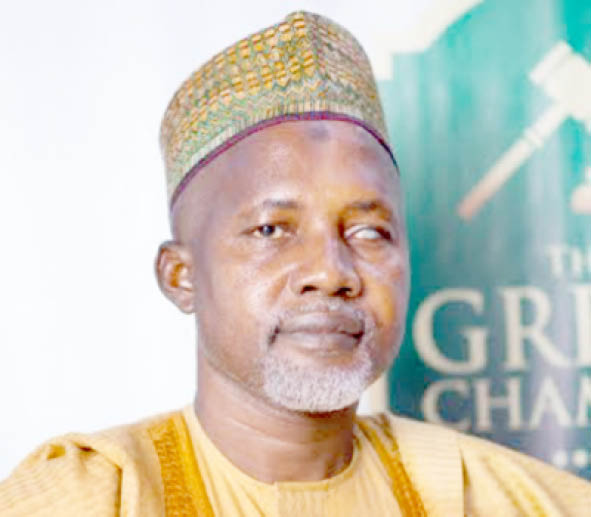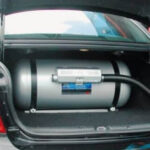“Technical education is no longer what it used to be. In the past we had all the required facilities to learn how to make different crafts. We had teachers who were well-experienced and taught in a manner we loved.
“During my secondary school days, when it was time for technical classes like introductory technology, it was always a double period on our time table. We did the first in class, where we were taught theory, and the second in the workshop.
“We carried our tools to the workshop and made crafts that were amazing. We used to take care of our facilities when they went bad. We repaired and constructed new chairs and benches. We created hand crafts that could be sold in the market. It was fulfilling seeing what we were able to make,” reminisced an engineer, identified simply as John.
He said today the case was not the same, as people were no longer bothering about technical education because of the mad competition for degree courses, in addition to the deteriorating state of technical colleges in the country.
- Sabotage on oil pipelines reducing state revenue — Bayelsa govt
- Kano gov to sign amended emirates bill, as Assembly passes law today
While noting that, “If you visit some of the schools, there are no facilities and qualified personnel to take charge of such subjects anymore,” he said, “There is need to revive technical education at both the lower and advanced levels, because learning of craft or skills is the way to go now; white collar job is no longer attractive.”
It is in recognition of the important role technical education plays in the productivity of a nation that President Bola Ahmed Tinubu’s government has made Technical and Vocational Education Training (TVET) the fourth pillar in its policy document.
According to UNESCO, TVET refers to: “Aspects of the educational process involving, in addition to general education, the study of technologies and related sciences and the acquisition of practical skills, attitudes, understanding and knowledge relating to occupants in various sectors of economic and social life.”
TVET is dispensed in public and private educational establishments or other forms of formal or informal instructions aimed at granting all segments of society access to life-long learning resources.
Though TVET is understudied at basic and higher education levels, stakeholders have raised concerns over the challenges faced by technical colleges at the basic level, which invariably affects the higher level.
The Executive Secretary of the National Board for Technical Education (NBTE), Prof Idris Bugaje, while speaking to journalists in Abuja recently on making TVET the fourth pillar in the policy document of the current administration, said technical colleges were the ones to feed the polytechnics, noting that it was the absence of products from technical colleges that led to the low number of technicians in the country.
While appealing to the president to adequately fund technical education, Bugaje said that infrastructure in technical education were already dilapidated, hence the need to revive the sector.
He said, “When you enter the halls they do practical in technical schools, it is either the roofs are leaking, the machines are obsolete or the materials are not available. The principals in such schools are graduates of sociology, the instructors have no experience and so they are not delivering.”
He, therefore, said, “There is a need for a marshal plan for technical education in Nigeria. We have to declare not only a state of emergency; which is easy to do, but let us also have a marshal plan for technical education so that we can reinvent the colleges, retrain the teachers and instructors and bring new equipment. Buy state-of-the-art equipment for welding- underwater welding, and train the people and give them proper certification so that they can have jobs across industries. So, funding is fundamental.”
He stressed the need to bring the informal skills sector into TVET training programmes so as to discourage the importation of skilled manpower.
Meanwhile, to enhance technical education, NBTE recently developed 14 trade subjects: motors vehicle; electrical installation; welding and fabrication; mechanical engineering craft; electronic system; maintenance of refrigerators, air conditioning and computer; GSM repair; carpentry and joinery; bricklaying/block laying and concreting; plumbing and pipe fitting; cosmetology; catering craft; fashion design and renewable energy.
To buttress what the NBTE boss said, some teachers and staff of technical colleges across the states, during a workshop organised by the National Business and Technical Examinations Board (NABTEB) on “The Review of Syllabus of Technical Colleges” in Abuja on Monday, raised serious concerns over inadequate qualified teachers in the colleges.
A staff of one of the technical colleges in Abuja said her school had only three teachers, hence that introducing new subjects without the required trained teachers might be counter-productive, while noting that the infrastructure in the school and the laboratories were deteriorating and needed urgent attention.
Other teachers confirmed that the same situation abounded in their schools, with one saying they had only one teacher taking all the technical subjects.
They said it was important that the issues of teachers and infrastructure were addressed in order to restore the glory of technical education in the country.
A participant at the workshop noted that during their days in school they had the right environment, teachers and facilities, and that such created better opportunities for them as companies like the Dangote Group came to their school to employ.
He said there was the need to put all hands on deck to restore the glory of technical education in the country, noting that it would address the serious challenge of unemployment in the country.
Another participant submitted that the issue of HND/BSC dichotomy should also be addressed as it was part of the reasons why there had been low enrolment into technical colleges and polytechnics in the country.
The Registrar of NABTEB, Prof Ifeoma Isiugo Abanihe, submitted that technical and vocational education was the bedrock of sustainable technological development.
She said, “In Nigeria today, production of needed technical personnel, in terms of craftsmen and master craftsmen, has been facing many challenges ranging from inadequate teaching equipment and materials, teaching personnel to those of curriculum and syllabuses.”
She explained that the review of the syllabuses by the board was quite fulfilling and fortuitous, saying it was in fulfillment of the current drive for innovation and skills empowerment by the federal government, especially through the education sector, which also encouraged inclusive education.
She further said, “This review is geared towards ensuring the training of artisans, craftsmen and master craftsmen to meet current demands of industries. It is for this reason that the board has made an effort to select highly qualified resource persons from both government institutions and the private sector to ensure that quality output is achieved.
She noted that the outcome of the exercise would be a rewarding experience for outputs.
The acting HOD of Examination Development at NABTEB, Mrs Folasade Idowu, said they would be reviewing existing syllabuses and develop new ones.
She said, “The goal of the board in reviewing these syllabuses is to enable us certify craftsmen and artisans who are educated and thus have the potential for upward mobility to correct the pitfalls of the past and at the same time in which the candidates will be skilled in specific trades rather than being tradesmen.”
She noted that the syllabuses would enable the board to identify through practical and written examinations candidates who had the competence to perform on the job.
Reacting to the development, the Minister of State for Education, Dr Yusuf Sununu, said the president prioritised education and that was why it was next to defence in terms of budgetary allocation.
He said, “The president is also worried about the number of children roaming the streets who are out of school, declining enrolment rates, school retention and completion and progression to tertiary education.”
He pointed out that the federal government was doing a lot to right the wrongs of the past, saying they were aware of all the challenges after receiving briefings from all the education parastatals.
He maintained that the president directed that skills acquisition must be infused at all levels of education, saying what Nigerians needed was the education that provided and armed them with what allowed them to stand in globally competitive knowledge.
He noted that in the last 14 years the curriculums and syllabuses of institutions, secondary and basic education, had not been reviewed, adding that, “I think 14 years is enough to call a child an adolescent. For us to remain for such a prolonged period without review of curriculums and syllabuses spell doom for the nation.”
He added that it was part of the mandate of the Federal Ministry of Education to ensure that all the curriculums and syllabuses were reviewed.
He further said, “We are in the time of Artificial Intelligence (AI), and you will agree with me that the time for teaching students ‘A is for apple, B is for ball is almost outdated, but must be in our archives for this nation to develop.”

 Join Daily Trust WhatsApp Community For Quick Access To News and Happenings Around You.
Join Daily Trust WhatsApp Community For Quick Access To News and Happenings Around You.


